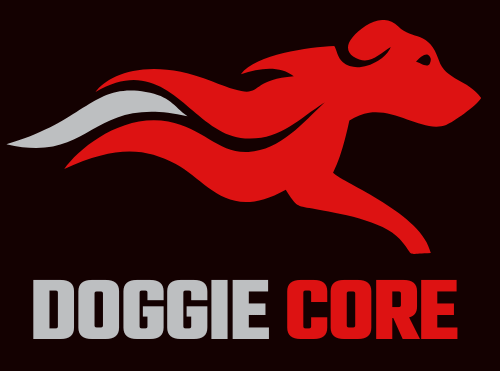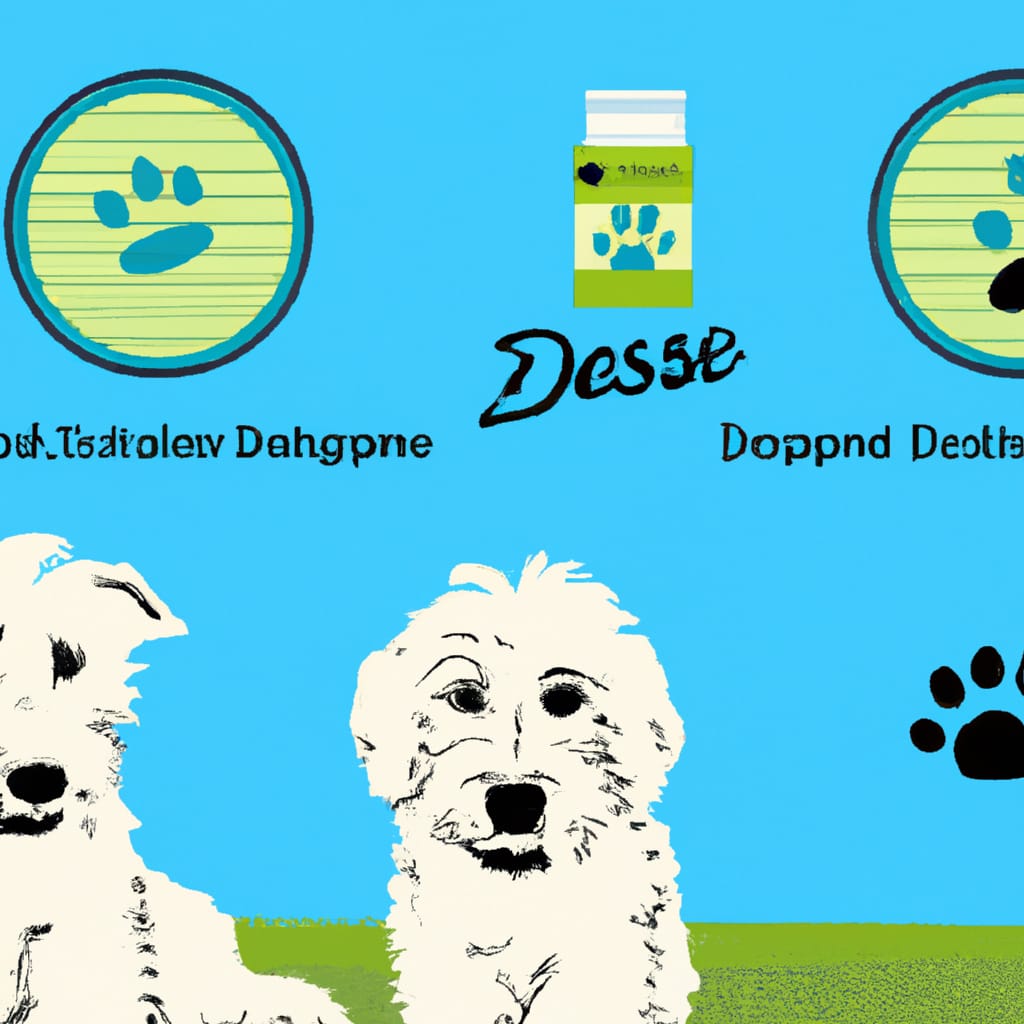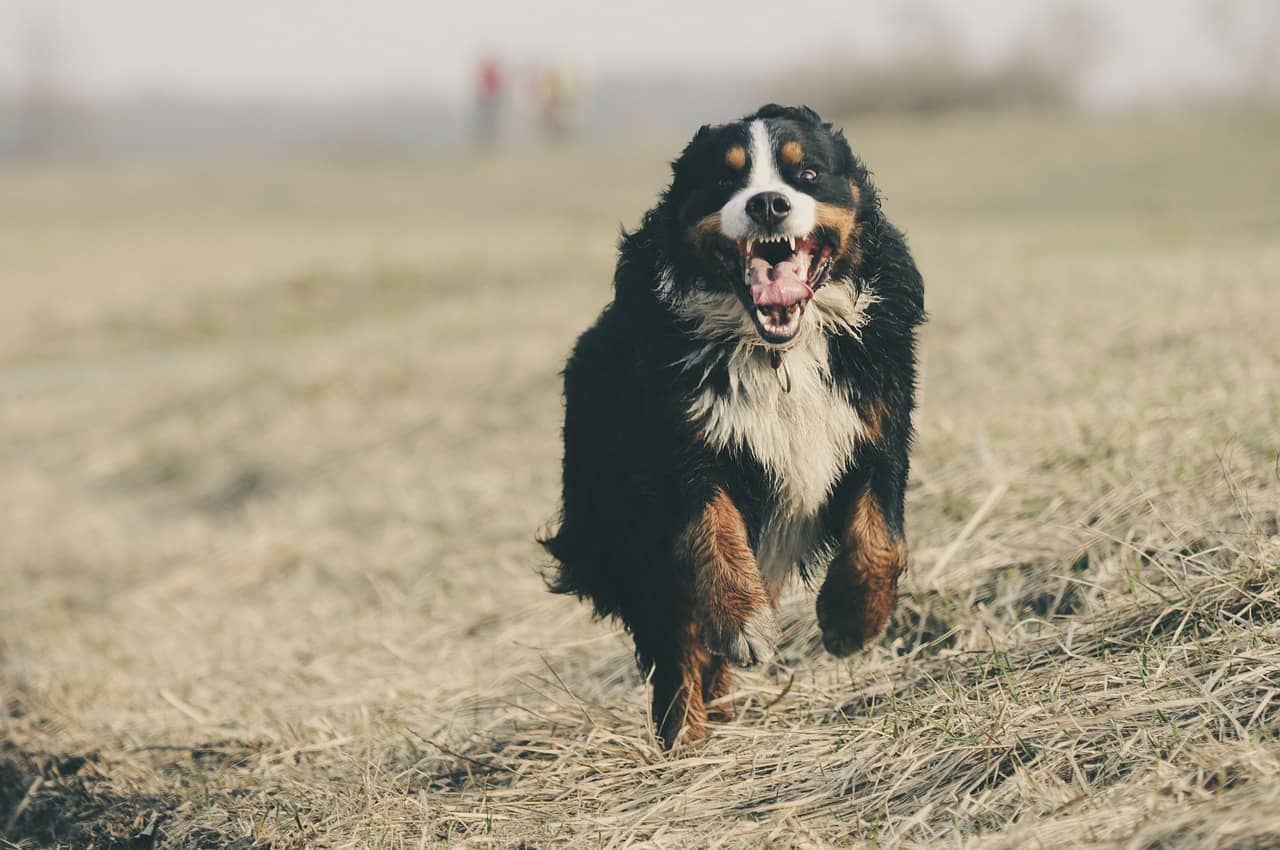The Benefits Of Adopting A Senior Dog
Have you ever considered adopting a senior dog? While puppies may be cute and full of energy, there are numerous benefits to bringing a senior dog into your home. From their sweet and gentle nature to their low-maintenance lifestyle, senior dogs have so much love and companionship to offer. In this article, we will explore the many advantages of adopting a senior dog, and why they may be the perfect addition to your family.
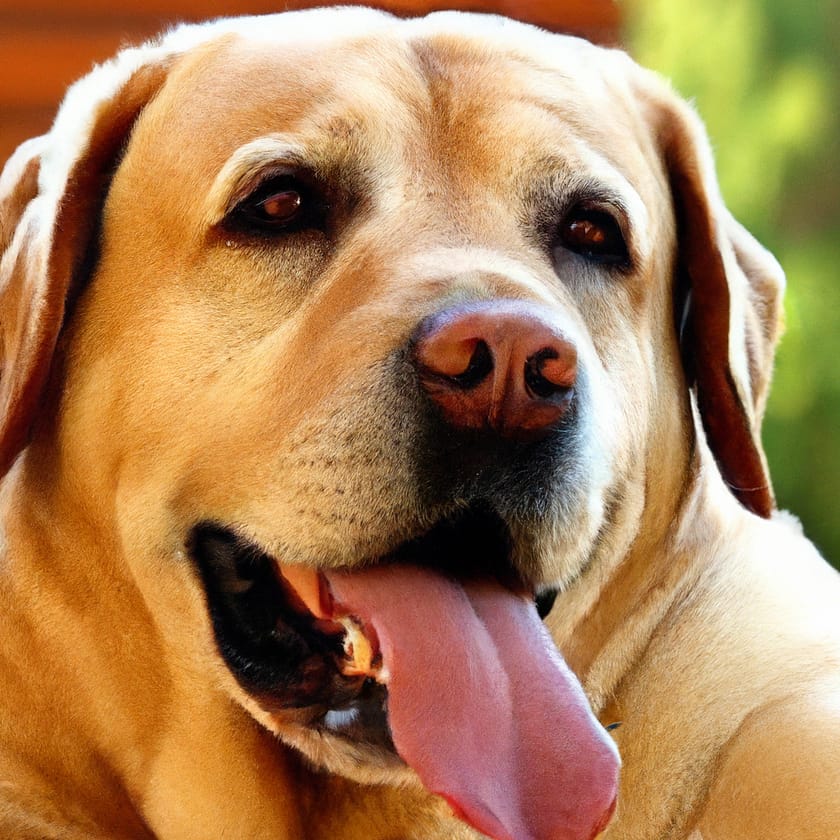
Physical Health Benefits
Reduced energy levels
When you adopt a senior dog, you can expect their energy levels to be lower compared to puppies or younger dogs. This can be beneficial, especially if you lead a less active lifestyle or if you’re unable to devote a significant amount of time to exercise. With a senior dog, you won’t have to worry about long walks or lengthy play sessions to tire them out. They are usually content with shorter walks and less intense exercise, making it easier for you to meet their needs.
Less destructive behavior
Senior dogs have usually outgrown their destructive behavior phase. Unlike puppies who may chew on furniture or destroy household items, senior dogs tend to be more well-behaved and have already learned what is acceptable and what is not. You can trust that your senior dog won’t be tearing up your favorite pair of shoes or digging holes in the backyard. This can save you from the frustration and expenses of having to replace damaged items.
Lower exercise requirements
If you have a busy schedule and find it challenging to find time for regular exercise, a senior dog may be the perfect companion for you. While exercise is still important for their overall well-being, senior dogs generally require less exercise compared to younger dogs. A leisurely walk and some indoor playtime should be enough to keep them healthy and happy. This lower exercise requirement can make it more manageable for you to incorporate regular physical activity into both your lives.
Lower risk of health issues
Contrary to popular belief, adopting a senior dog does not necessarily mean that you will be dealing with more health problems than if you were to adopt a younger dog. In fact, many senior dogs are in good health and can live a long and fulfilling life with proper care. Additionally, senior dogs tend to have established temperaments and characteristics, making it easier for you to assess their health and provide any necessary medical attention. Regular vet check-ups and a balanced diet can greatly reduce the risk of health issues in senior dogs.
Already house-trained
One of the greatest benefits of adopting a senior dog is that they are often already house-trained. They have learned where and when to go to the bathroom and have gained bladder control. This means you won’t have to spend time and effort teaching them these basic skills. With a senior dog, you can expect fewer accidents in the house and a smoother transition into your home. You’ll have more time to focus on building a strong bond and enjoying your time together.
Emotional Benefits
Calmer temperament
Senior dogs typically have a calmer and more relaxed temperament compared to younger dogs. They have grown out of the puppy phase and have learned to be more patient and adaptable. This can be particularly comforting for individuals who prefer a more laid-back and peaceful environment. A calm and gentle senior dog can provide a soothing presence and help create a sense of tranquility in your home.
Less demand for attention
While dogs of all ages enjoy attention and human interaction, senior dogs generally require less constant attention compared to their younger counterparts. They are content with relaxing by your side or curling up on their cozy bed while you go about your daily activities. This can be beneficial if you have a busy lifestyle or if you need some personal space from time to time. A senior dog can be a loving companion without demanding your attention every second of the day.
Easier to bond with
Senior dogs have often experienced life with previous owners or in shelters, which can create a strong desire for companionship. They understand the importance of forming a bond with their new family and are often more receptive to love and affection. When you adopt a senior dog, you’ll find that they are eager to connect with you and be a part of your life. This can lead to a quicker and deeper bond, providing you with a loyal and loving companion.
Companionship for seniors
Senior dogs are well-suited for individuals who are also in their golden years. They understand the unique needs and lifestyle of seniors and can provide the companionship and emotional support that is beneficial for both parties. Having a senior dog by your side can help alleviate feelings of loneliness and isolation, and provide a sense of purpose and routine. They can offer comfort and unwavering companionship, making the senior years more enjoyable and fulfilling.
Sense of fulfillment
Adopting a senior dog can bring a great sense of fulfillment and joy. By providing a loving and comfortable home for a senior dog, you are giving them a second chance at a happy life. Knowing that you have made a positive difference in their life can be incredibly rewarding. Senior dogs have so much love and loyalty to offer, and by opening your heart to them, you’ll experience a deep sense of fulfillment and gratitude.
Behavioral Benefits
Well-behaved and trained
One of the major advantages of adopting a senior dog is that they are often already well-behaved and trained. Many senior dogs have had previous owners and have learned basic obedience commands and household manners. This means you won’t have to spend as much time and effort on training and can focus more on strengthening the bond between you and your new furry friend. You can trust that your senior dog will be a good member of your household from day one.
Less prone to separation anxiety
Senior dogs are usually more settled and independent compared to younger dogs, which makes them less prone to separation anxiety. They have most likely developed coping mechanisms and have a better understanding of being alone for certain periods. This can be beneficial if you work outside the home or have other commitments that require you to be away for extended periods. A senior dog can handle time alone more easily and won’t be as distressed when you’re not by their side.
Settled and relaxed
Many senior dogs have already passed the stage of excessive energy and hyperactivity. They tend to be more settled and relaxed, which can create a calm and peaceful atmosphere in your home. Senior dogs enjoy a slower pace of life, and this can be a perfect match for individuals who also prefer a more laid-back lifestyle. With a senior dog, you can expect a gentle and serene presence that can help you unwind and de-stress after a long day.
Good with children and other pets
Another advantage of adopting a senior dog is that they often have experience living with other animals and children. They have learned how to interact and socialize with different types of pets and know how to behave around young children. This can be particularly beneficial if you already have other pets or if you have a growing family. With a senior dog, you can have peace of mind knowing that they will get along well with everyone in the household.
Less need for training
Unlike puppies who require extensive training and socialization, senior dogs generally require less training. They have already gone through their formative years and have learned the basics of being a well-rounded dog. This means you won’t have to spend as much time and effort on teaching them commands and manners. Of course, every dog is different, and there may be some specific training needs for your senior dog, but overall, the training process will likely be much smoother compared to adopting a younger dog.
Lifestyle Benefits
Lower financial cost
Welcoming a senior dog into your home can also be advantageous from a financial perspective. Senior dogs often come with lower adoption fees compared to puppies or younger dogs. Additionally, they may require less expensive supplies and equipment, such as smaller-sized beds and toys. In terms of medical expenses, while senior dogs may have specific health needs, their overall veterinary care can be less costly compared to ongoing vaccinations and spaying/neutering that puppies require. Adopting a senior dog can be a more cost-effective option for those on a budget.
Avoiding puppy phase challenges
While puppies are undeniably adorable, they also come with a set of challenges. The infamous puppy phase can be demanding and time-consuming, with potty training, teething, and constant supervision. By adopting a senior dog, you bypass this challenging phase altogether. You won’t have to deal with chewed furniture, early morning wake-up calls, or the never-ending energy of a growing puppy. Instead, you can enjoy the companionship and love of a dog who is past those formative years.
Predictable size and characteristics
When you adopt a senior dog, you usually have a good idea of their size, temperament, and overall characteristics. Unlike puppies who can grow into surprising sizes or develop unexpected personality traits, senior dogs have already reached their adult size and have established their personalities. This predictability can be advantageous when planning your living arrangements, choosing appropriate toys, and understanding what to expect in terms of behavior. You can make informed decisions that align with your lifestyle and preferences.
Less time commitment
Adulting comes with various responsibilities and time commitments. Adopting a senior dog offers the advantage of requiring less time and attention compared to younger dogs. Senior dogs are typically more independent and can entertain themselves for longer periods. They don’t require constant monitoring or intense exercise sessions, allowing you to balance their care with work, family, and other commitments. This can be particularly beneficial for individuals with busy schedules or those who are looking for a more low-maintenance pet.
Supporting animal shelters
Adopting a senior dog not only benefits you but also supports animal shelters and rescue organizations. Older dogs often have a harder time finding forever homes, as many people tend to gravitate towards puppies or younger dogs. By giving a senior dog a second chance, you are alleviating the burden on shelters and making room for them to help other animals in need. When you adopt a senior dog, you’re not only gaining a loving companion but also actively contributing to the well-being of animals in your community.
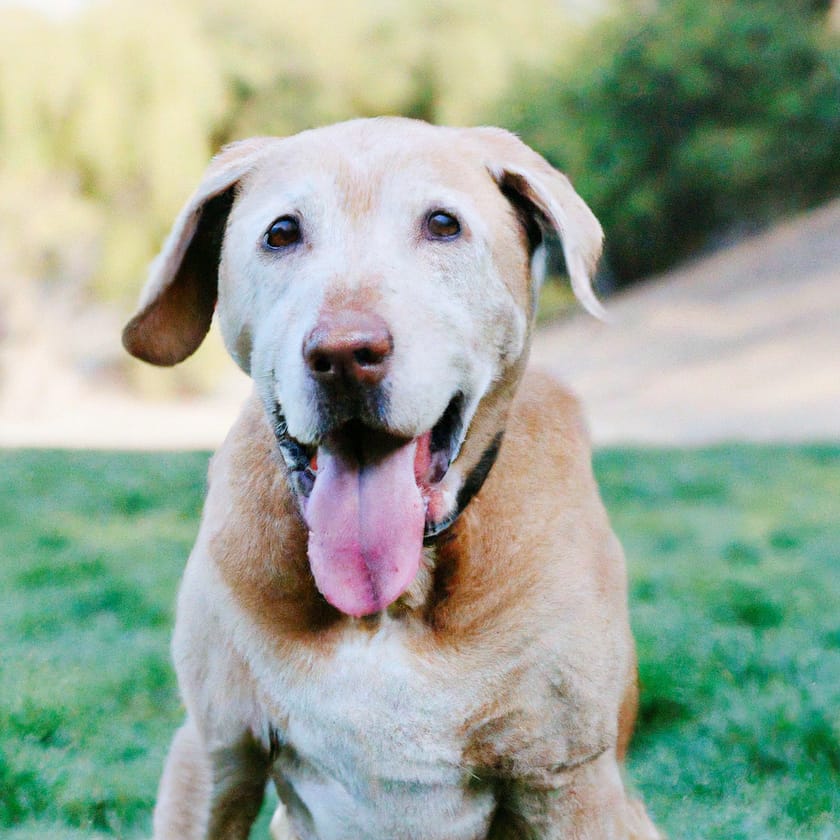
Controversies and Misconceptions
Shorter lifespan
One common misconception about adopting a senior dog is that they have a significantly shorter lifespan compared to younger dogs. While it’s true that senior dogs may have fewer years left compared to puppies, they can still live happy and fulfilling lives. Many senior dogs are perfectly healthy and may have several more years of companionship to offer. It’s important to remember that every individual dog is unique, and their life expectancy can vary. By providing them with proper care and love, you can ensure that their remaining years are filled with happiness and quality.
Potential health issues
Another concern often associated with adopting a senior dog is the possibility of underlying health issues. While it is true that senior dogs may have specific health needs, it’s important to remember that younger dogs can also experience health issues. When adopting a senior dog, it’s crucial to have a thorough vet check-up to assess their overall health and address any existing conditions. By staying proactive with their medical care and providing a balanced diet, you can help them live a healthy and comfortable life.
The myth of being untrainable
Some individuals believe that senior dogs are untrainable because they may have developed bad habits or have spent years without consistent training. However, this is simply a myth. Senior dogs are capable of learning new tricks and behaviors, provided they receive patient and consistent training. Many senior dogs are eager to please and are quick to pick up on commands and routines. With positive reinforcement and a gentle approach, you can successfully train a senior dog and help them become a well-mannered member of your family.
Emotional baggage or trauma
Senior dogs may have experienced difficult situations in the past, including abandonment, neglect, or changes in their living arrangements. As a result, some people worry about potential emotional baggage or trauma that may affect their behavior. While it’s true that some senior dogs may carry emotional scars, it’s important to remember that love, patience, and understanding can help them overcome their past experiences. By providing them with a safe and nurturing environment, you can help them heal and trust again. With time and care, your senior dog can flourish and become a joyful and loving companion.
Limited time for bonding
Another concern that arises when adopting a senior dog is the notion that you will have limited time to bond with them. While it’s true that senior dogs may have fewer years left compared to a puppy, the bond you can develop with them can be just as strong and meaningful. Senior dogs have so much love and loyalty to offer, and the time you spend together can be incredibly special. Embracing the present and cherishing each moment can lead to a deep and fulfilling bond that transcends the limits of time.
Special Considerations
Veterinary care requirements
Because senior dogs may have specific health needs, it’s important to be aware of their veterinary care requirements. Regular vet visits are crucial to monitor their overall health and catch any potential issues early on. Your vet may recommend specific vaccinations, bloodwork, or dietary adjustments to ensure the well-being of your senior dog. It’s essential to stay proactive and attentive to their medical needs, providing them with the best care possible as they age gracefully.
Understanding past trauma
When adopting a senior dog, it’s important to understand that they may have experienced past trauma or difficult situations. While they may not be able to tell you their story, their behavior and body language can provide you with some insights. It’s essential to be patient, compassionate, and understanding as your senior dog adjusts to their new home. Give them time and space to feel safe and secure, and provide reassurance and positive reinforcement to help them overcome any emotional hurdles.
Adjustment period
Just like any dog, senior dogs need time to adjust to their new surroundings and routines. It’s important to be patient during this adjustment period as they familiarize themselves with their new home and family members. Provide a consistent schedule and a safe space for them to retreat to when they feel overwhelmed. Slowly introduce them to new experiences, people, and pets, allowing them to explore at their own pace. With patience and understanding, your senior dog will gradually settle into their new life and become a happy and content member of your family.
Meeting exercise needs
While senior dogs generally require less exercise, it’s essential to meet their individual exercise needs. Consult with your vet to determine the appropriate amount and type of exercise for your senior dog. Regular but gentle exercise is important to maintain their physical health and prevent weight gain. Short walks, swimming, or low-impact activities can provide mental stimulation and keep them physically fit. Adjust their exercise routine as needed, considering any health conditions or limitations they may have.
Creating a comfortable environment
Creating a comfortable environment for your senior dog is crucial to their overall well-being. Provide them with a cozy and well-padded bed where they can rest and sleep comfortably. Consider investing in pet ramps or stairs to help them navigate furniture or stairs more easily. Ensure their living space is free from hazards and obstacles that could potentially cause injury. Make sure they have easy access to food, water, and their designated bathroom area. A comfortable environment will help your senior dog feel safe, secure, and truly at home.

Choosing the Right Senior Dog
Researching different breeds
Before adopting a senior dog, it’s important to research different breeds to find one that aligns with your lifestyle and preferences. Consider factors such as size, energy levels, grooming requirements, and temperament. Remember that each breed has its own unique characteristics, and finding the right match for you is essential for a harmonious and fulfilling experience.
Considering energy levels
While senior dogs generally have lower energy levels compared to younger dogs, it’s still important to consider their individual energy levels. Some senior dogs may still have a fair amount of energy, while others may be more laid-back. Think about your own activity level and choose a senior dog that can comfortably meet your exercise needs and lifestyle. Discuss your preferences with shelter staff or rescue organizations to ensure a good match.
Meeting the dog in person
When adopting a senior dog, it’s crucial to meet them in person before making a decision. Spending time with the dog will give you a better understanding of their personality, behavior, and compatibility with your family. Take your time observing their interactions, playing with them, and assessing their overall demeanor. This will help you make an informed decision and ensure that the senior dog is a good fit for your home.
Consulting with shelter staff
Shelter staff and volunteers are a valuable source of information when it comes to adopting a senior dog. They can provide insights into the dog’s history, behavior, and specific needs. Don’t hesitate to ask questions and seek their guidance during the adoption process. Their experience and knowledge can help you make a well-informed decision and find the perfect senior dog for your home.
Matching personality and lifestyle
The key to a successful adoption is finding a senior dog whose personality and lifestyle align with yours. Consider factors such as activity level, sociability, and compatibility with other pets and children. Discuss your expectations and preferences with shelter staff, who can help match you with a senior dog that suits your specific requirements. By finding a strong personality match, you are more likely to build a lasting and harmonious relationship with your senior dog.
Preparing Your Home for a Senior Dog
Removing hazards and obstacles
Before bringing a senior dog into your home, it’s important to remove any potential hazards and obstacles. Senior dogs may have mobility issues or vision impairments, so ensuring a safe environment is essential. Remove small objects that can be a choking hazard, secure loose electrical cords, and block off access to dangerous areas. This will prevent accidents and allow your senior dog to navigate their living space safely and comfortably.
Providing a comfortable sleeping space
A comfortable sleeping space is essential for a senior dog’s well-being and quality of rest. Invest in a well-padded and supportive bed that is appropriate for their size and any specific health conditions they may have. Consider bedding materials that are soft, easily washable, and hypoallergenic. Place the bed in a quiet and calm area of your home, away from excessive noise or foot traffic. Creating a cozy and inviting sleeping space will ensure that your senior dog can relax and recharge.
Choosing appropriate toys and treats
While senior dogs may not have the same level of energy as younger dogs, they can still benefit from appropriate toys and treats. Opt for toys that are easy to grip and gentle on their aging teeth and gums. Puzzle toys or treat-dispensing toys can provide mental stimulation and keep them entertained. Choose treats that are specifically designed for senior dogs, taking their dietary needs and potential dental issues into consideration. Providing appropriate toys and treats will help keep your senior dog happy, mentally stimulated, and satisfied.
Ensuring easy access to food and water
Senior dogs may have mobility issues, so it’s important to ensure easy access to food and water. Choose elevated food and water bowls that are at a comfortable height for your senior dog to reach. This can help prevent strain on their neck or back while eating or drinking. Place the bowls in a quiet area of your home, away from high traffic areas and excessive noise. Adequate hydration and easy access to nutritious food are vital for your senior dog’s overall health and well-being.
Creating a quiet and calm environment
Senior dogs often appreciate a quiet and calm environment where they can relax and feel at ease. Minimize loud noises, excessive activity, and chaotic environments as much as possible. Provide a designated space where your senior dog can retreat to when they need some alone time. Consider using white noise machines or calming music to create a soothing atmosphere. A peaceful environment will allow your senior dog to unwind, reduce stress, and fully enjoy their time in their new home.

Caring for a Senior Dog
Providing a balanced diet
A balanced diet plays a crucial role in maintaining your senior dog’s health and vitality. Consult with your vet to determine the appropriate type and amount of food for your senior dog. Senior dogs may have specific dietary needs, such as reduced calorie or joint support options. Opt for high-quality dog food that is specifically formulated for older dogs. Monitor their weight and adjust their food intake as needed. Providing a nutritious and balanced diet will support their overall well-being and help them age gracefully.
Regular exercise routine
While senior dogs require less exercise compared to younger dogs, regular physical activity is still important for their health and well-being. Consult with your vet to determine the appropriate exercise routine for your senior dog. Gentle walks, indoor play sessions, and low-impact activities can help maintain their joint mobility, mental stimulation, and overall physical fitness. Be attentive to signs of fatigue or discomfort during exercise and adjust their routine accordingly. Regular exercise will keep your senior dog happy, healthy, and physically active.
Scheduling regular vet visits
Regular vet visits are crucial for monitoring your senior dog’s health and addressing any potential issues. Schedule routine check-ups with your vet to assess their overall well-being, check for signs of age-related conditions, and update vaccinations if necessary. These visits also provide an opportunity to discuss any concerns or questions you may have about your senior dog’s health. By staying proactive with veterinary care, you can ensure that your senior dog receives the necessary support to enjoy a long and healthy life.
Maintaining dental health
Senior dogs are more prone to dental issues, such as gum disease or tooth decay. It’s important to maintain their dental health by implementing a regular dental care routine. Brush your senior dog’s teeth regularly using a dog-specific toothbrush and toothpaste. Dental treats or toys can also help reduce plaque buildup and keep their teeth clean. Regular dental care will not only benefit their oral health but also contribute to their overall well-being.
Monitoring weight and mobility
As dogs age, their metabolism and mobility may change. It’s important to closely monitor your senior dog’s weight and mobility to ensure they are in optimal condition. Regularly weigh your senior dog and consult with your vet to determine their ideal weight range. If your dog experiences weight gain or loss, adjust their diet and exercise routine accordingly. Additionally, pay attention to their mobility and any signs of stiffness or discomfort. If mobility issues arise, consult with your vet to explore options such as joint supplements or physical therapy. By actively monitoring weight and mobility, you can address any issues early on and ensure your senior dog’s comfort and quality of life.
Conclusion
Adopting a senior dog can bring a wealth of benefits and rewards. The physical health benefits, emotional fulfillment, and behavioral advantages make adopting a senior dog a worthwhile and joyful experience. With reduced energy levels, less destructive behavior, and lower exercise requirements, a senior dog is a perfect companion for those looking for a calmer and more relaxed lifestyle. They offer emotional benefits such as a calmer temperament and less demand for attention, making them ideal companions for seniors or individuals who prefer a more low-maintenance pet.
Not only do senior dogs often come with less training needs and less likelihood of separation anxiety, but they are also well-behaved, good with children and other pets, and require less training overall. From a lifestyle perspective, adopting a senior dog can be more cost-effective, avoid the challenges of the puppy phase, and offer predictable characteristics. By supporting animal shelters and rescue organizations, you can make a difference in the lives of senior dogs and contribute to their well-being.
While controversies and misconceptions may exist around senior dogs, understanding their needs and providing the appropriate care can address many concerns. By being aware of veterinary care requirements, understanding past trauma, allowing for an adjustment period, meeting exercise needs, and creating a comfortable environment, you can ensure a smooth transition for your senior dog.
Choosing the right senior dog involves researching different breeds, considering energy levels, meeting the dog in person, consulting with shelter staff, and matching personality and lifestyle. Preparing your home for a senior dog by removing hazards, providing a comfortable sleeping space, choosing appropriate toys and treats, ensuring easy access to food and water, and creating a quiet environment are essential steps for a successful adoption.
To provide the best care for your senior dog, it’s important to focus on providing a balanced diet, maintaining a regular exercise routine, scheduling regular vet visits, maintaining dental health, and monitoring weight and mobility. By following these practices, you can ensure the well-being and happiness of your senior dog.
In conclusion, adopting a senior dog is a rewarding experience that offers gratitude, lifelong companionship, and the opportunity to make a positive difference in a dog’s life. By considering the benefits, addressing misconceptions, and embracing the special considerations of adopting a senior dog, you can enjoy the unconditional love and companionship that a senior dog has to offer. Adopting a senior dog not only improves your life but also gives a deserving dog a second chance at happiness. So open your heart and home to a senior dog and experience the immense joy and fulfillment they can bring to your life.

